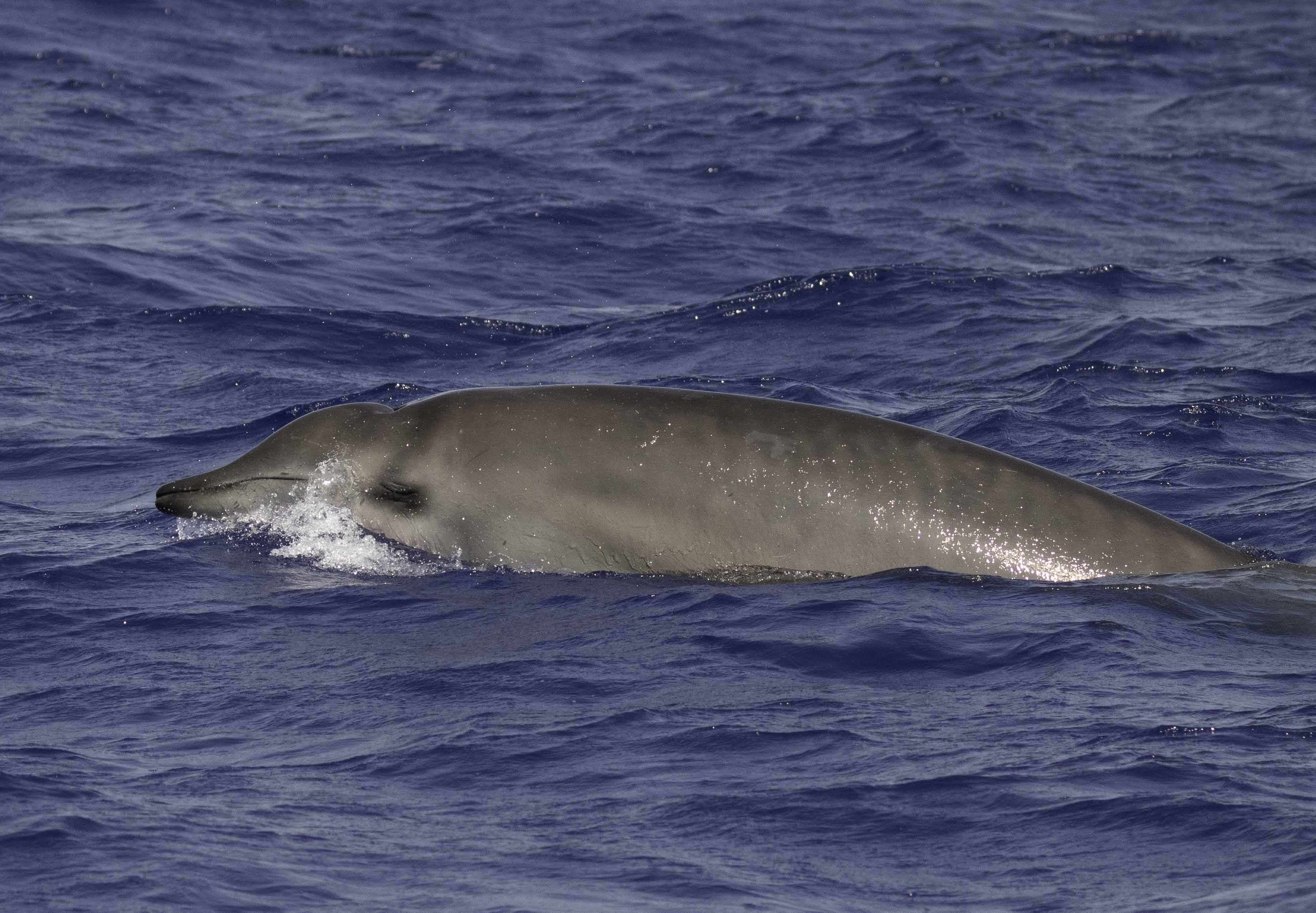|
| Distribution |
Found along the entire NC coast in deep, pelagic waters beyond the Continental Shelf.
Gervais’ Beaked Whale is an Atlantic Ocean endemic, ranging from tropical to warm temperate waters. In the Western North Atlantic, it has stranded from Canada to Florida and throughout the Gulf of Mexico.
|
| Abundance |
Unknown. Gervais’ Beaked Whales are the most frequently stranded species of beaked whale in the Western North Atlantic, including off the coast of NC. Byrd (2014) lists 13 NC strandings of Gervais’ Beaked Whales from 1997-2008. The latest NOAA stock assessment from 2014 lists the species as data deficient. |
| Seasonal Occurrence |
Occurs year round in deep, pelagic waters offshore NC. Strandings have been recorded during every month of the year in the state. Stanistreet (2017) recorded Gervais' Beaked Whale echolocation clicks for 97% of the 432 recording days on an underwater passive acoustic array mounted in deep waters east of Onslow Bay. |
| Habitat |
Found in deep, pelagic waters at and beyond the Continental Shelf, usually in waters greater than 500 meters depth. |
| Behavior |
Due to its offshore distribution, inconspicuous behavior at the surface, and frequency of long dives, Gervais’ Beaked Whales are rarely observed in the wild. The species occurs in small groups, usually less than 8 animals. Like many other species of beaked whales, Gervais’ Beaked Whales make a series of short dives, usually lasting less than 15 minutes, with brief surface intervals in between, followed by a longer foraging dive lasting up to an hour in length. |
| Comments |
Gervais’ Beaked Whales are regularly encountered on pelagic birding trips off Cape Hatteras. It is the most frequently photographed species of Mesoplodon in NC waters. A paper (Tove 2014) describing a sighting of True’s Beaked Whales off Cape Hatteras is incorrect. Based on the photographs published, it is clear that sighting was a group of Gervais’ Beaked Whales. |
| Origin |
Native |
| NC List |
Official |
 State Rank State Rank |
S3M |
| State Status |
|
 Global Rank Global Rank |
G3 |
| Federal Status |
|
| subspecies |
|
| other_comName |
|
| synonym |
|



